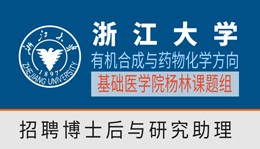Our official English website, www.x-mol.net, welcomes your feedback! (Note: you will need to create a separate account there.)
Targeting breast cancer cells by MRS1477, a positive allosteric modulator of TRPV1 channels.
PLOS ONE ( IF 2.9 ) Pub Date : 2017-06-24 , DOI: 10.1371/journal.pone.0179950 Mustafa Nazıroğlu 1, 2 , Bilal Çiğ 2 , Walter Blum 3 , Csaba Vizler 4 , Andrea Buhala 4 , Annamária Marton 4 , Róbert Katona 4 , Katalin Jósvay 4 , Beat Schwaller 3 , Zoltán Oláh 5, 6 , László Pecze 3
PLOS ONE ( IF 2.9 ) Pub Date : 2017-06-24 , DOI: 10.1371/journal.pone.0179950 Mustafa Nazıroğlu 1, 2 , Bilal Çiğ 2 , Walter Blum 3 , Csaba Vizler 4 , Andrea Buhala 4 , Annamária Marton 4 , Róbert Katona 4 , Katalin Jósvay 4 , Beat Schwaller 3 , Zoltán Oláh 5, 6 , László Pecze 3
Affiliation
There is convincing epidemiological and experimental evidence that capsaicin, a potent natural transient receptor potential cation channel vanilloid member 1 (TRPV1) agonist, has anticancer activity. However, capsaicin cannot be given systemically in large doses, because of its induction of acute pain and neurological inflammation. MRS1477, a dihydropyridine derivative acts as a positive allosteric modulator of TRPV1, if added together with capsaicin, but is ineffective, if given alone. Addition of MRS1477 evoked Ca2+ signals in MCF7 breast cancer cells, but not in primary breast epithelial cells. This indicates that MCF7 cells not only express functional TRPV1 channels, but also produce endogenous TRPV1 agonists. We investigated the effects of MRS1477 and capsaicin on cell viability, caspase-3 and -9 activities and reactive oxygen species production in MCF7 cells. The fraction of apoptotic cells was increased after 3 days incubation with capsaicin (10 μM) paralleled by increased reactive oxygen species production and caspase activity. These effects were even more pronounced, when cells were incubated with MRS1477 (2 μM) either alone or together with CAPS (10 μM). Capsazepine, a TRPV1 blocker, inhibited both the effect of capsaicin and MRS1477. Whole-cell patch clamp recordings revealed that capsaicin-evoked TRPV1-mediated current density levels were increased after 3 days incubation with MRS1477 (2 μM). However, the tumor growth in MCF7 tumor-bearing immunodeficient mice was not significantly decreased after treatment with MRS1477 (10 mg/ kg body weight, i.p., injection twice a week). In conclusion, in view of a putative in vivo treatment with MRS1477 or similar compounds further optimization is required.
中文翻译:

通过MRS1477(TRPV1通道的正变构调节剂)靶向乳腺癌细胞。
有令人信服的流行病学和实验证据表明,辣椒素是一种有效的天然瞬时受体潜在阳离子通道vanilloid成员1(TRPV1)激动剂,具有抗癌活性。然而,由于辣椒素诱导急性疼痛和神经系统炎症,因此不能大剂量全身给药。如果与辣椒素一起添加,二氢吡啶衍生物MRS1477可作为TRPV1的正变构调节剂,但如果单独给予,则无效。MRS1477的诱发在MCF7乳腺癌细胞中引起Ca2 +信号,但在原发性乳腺癌上皮细胞中则没有。这表明MCF7细胞不仅表达功能性TRPV1通道,而且还产生内源性TRPV1激动剂。我们研究了MRS1477和辣椒素对细胞活力的影响,caspase-3和-9活性以及MCF7细胞中活性氧的产生。与辣椒素(10μM)孵育3天后,凋亡细胞的比例增加,同时活性氧的产生和胱天蛋白酶的活性增加。当将细胞与MRS1477(2μM)单独或与CAPS(10μM)一起孵育时,这些作用甚至更加明显。辣椒素(TRPV1阻滞剂)同时抑制辣椒素和MRS1477的作用。全细胞膜片钳记录显示,与MRS1477(2μM)孵育3天后,辣椒素引起的TRPV1介导的电流密度水平增加。但是,用MRS1477(10 mg / kg体重,腹腔注射,每周两次注射)治疗后,带有MCF7肿瘤的免疫缺陷小鼠的肿瘤生长没有明显降低。综上所述,
更新日期:2019-11-01
中文翻译:

通过MRS1477(TRPV1通道的正变构调节剂)靶向乳腺癌细胞。
有令人信服的流行病学和实验证据表明,辣椒素是一种有效的天然瞬时受体潜在阳离子通道vanilloid成员1(TRPV1)激动剂,具有抗癌活性。然而,由于辣椒素诱导急性疼痛和神经系统炎症,因此不能大剂量全身给药。如果与辣椒素一起添加,二氢吡啶衍生物MRS1477可作为TRPV1的正变构调节剂,但如果单独给予,则无效。MRS1477的诱发在MCF7乳腺癌细胞中引起Ca2 +信号,但在原发性乳腺癌上皮细胞中则没有。这表明MCF7细胞不仅表达功能性TRPV1通道,而且还产生内源性TRPV1激动剂。我们研究了MRS1477和辣椒素对细胞活力的影响,caspase-3和-9活性以及MCF7细胞中活性氧的产生。与辣椒素(10μM)孵育3天后,凋亡细胞的比例增加,同时活性氧的产生和胱天蛋白酶的活性增加。当将细胞与MRS1477(2μM)单独或与CAPS(10μM)一起孵育时,这些作用甚至更加明显。辣椒素(TRPV1阻滞剂)同时抑制辣椒素和MRS1477的作用。全细胞膜片钳记录显示,与MRS1477(2μM)孵育3天后,辣椒素引起的TRPV1介导的电流密度水平增加。但是,用MRS1477(10 mg / kg体重,腹腔注射,每周两次注射)治疗后,带有MCF7肿瘤的免疫缺陷小鼠的肿瘤生长没有明显降低。综上所述,







































 京公网安备 11010802027423号
京公网安备 11010802027423号